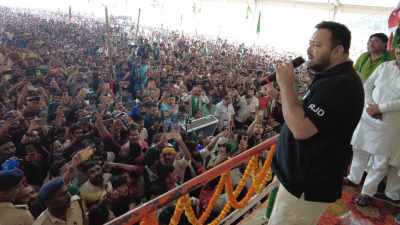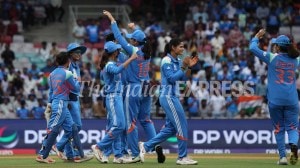No direction to Govt to enact Uniform Civil Code — SC
New Delhi, May 6: In an important clarification, the Supreme Court has said that it had not issued any direction to the Centre to enact a ...

New Delhi, May 6: In an important clarification, the Supreme Court has said that it had not issued any direction to the Centre to enact a Uniform Civil Code while ruling in 1995 that if a Hindu man after conversion to Islam marries for the second time without dissolving his first marriage he would face bigamy charges.
A Bench comprising Justice S Saghir Ahmad and Justice R P Sethi, in separate but concurring judgements, refused to review the ruling but said "This Court in Sarla Mudgal’s Case had not issued any direction for the enactment of a Common Civil Code."
The Court interpreting the scope and extent of Section 494 (Bigamy) of the Indian Penal Code in the Sarla Mudgal case in 1995 had held "…that the second marriage of a Hindu husband after conversion to Islam, without having his first marriage dissolved under law, would be invalid. The second marriage would be void in terms of the provisions of Section 494 IPC and the apostate-husband would be guilty of offence under Section 494."
The Bench termed the petitions filed by various persons and Jamait-Ulema Hind for review of the 1995 ruling as "misconceived and bereft of any substance."
It further said the law declared in Sarla Mudgal’s case would apply to persons who have solemnised marriages in violation of the mandate of law prior to the 1995 judgement and rejected arguments against this.
Regarding the bigamy charges being applied to persons who convert to get married again, Justice Sethi said the court had not laid down any new law but only interpreted the existing one which was in force.
"It is settled principle that the interpretation of law relates to the date of the law itself and cannot be prospective from the date of judgement because concededly the Court does not legislate but only give an interpretation to an existing law," he said.
"We do not agree with the argument that the second marriage by a convert male Muslim has been made offence only by judicial pronouncement," Justice Sethi said for the Bench.
Justice Ahmad said "a person who mockingly adopts another religion where plurality of marriage is permitted so as to renounce the previous marriage and desert the wife, he cannot be permitted to take advantage of his exploitation as religion is not a commodity to be exploited."
Justice Sethi said the review petition alleging violation of Article 20 (no person shall be convicted for any offence unless specified in law) of the Constitution was without any substance and was liable to be dismissed on this ground alone.
The Court said the grievance that its 1995 judgement amounted to violation of the freedom of conscience and free profession, practice and propagation of religion was also far-fetched.
"No person, by the 1995 judgement, has been denied the freedom of conscience and propagation of religion," the Bench said.
It was contended by the petitioners that making a convert Hindu liable for prosecution under Penal Code would be against Islam, the religion adopted by such persons upon conversion.
Repelling the argument, Justice Sethi said "Such a plea raised demonstrates the ignorance of petitioners about the tenets of Islam and its teachings."
He said "The progressive outlook and wider approach of Islamic Law cannot be permitted to be squeezed and narrowed by unscrupulous litigants, apparently indulging in sensual lust sought to be quenched by illegal means, who apparently are found to be guilty of the commission of the offence under the law to which they belonged before their alleged conversion."
On the apprehension of Jamait-Ulema Hind that government would enact a Common Civil Code on the basis of Sarla Mudgal Judgement, Justice Sethi said "We deem it proper to reiterate that this court had not issued any direction for codification of the Common Civil Code and the judges constituting the different Benches had only expressed their views in the facts and circumstances of those cases."
The Bench also noted that the Centre had informed the Court that it did not intend to take any action in this regard on the basis of the judgement alone.
While refusing to entertain any arguments on review of the 1995 judgement, Justice Ahmad said "The institution of marriage under every personal law is a sacred institution. Under Hindu Law, Marriage is a sacrament. Both have to be preserved."






- 01
- 02
- 03
- 04
- 05

























